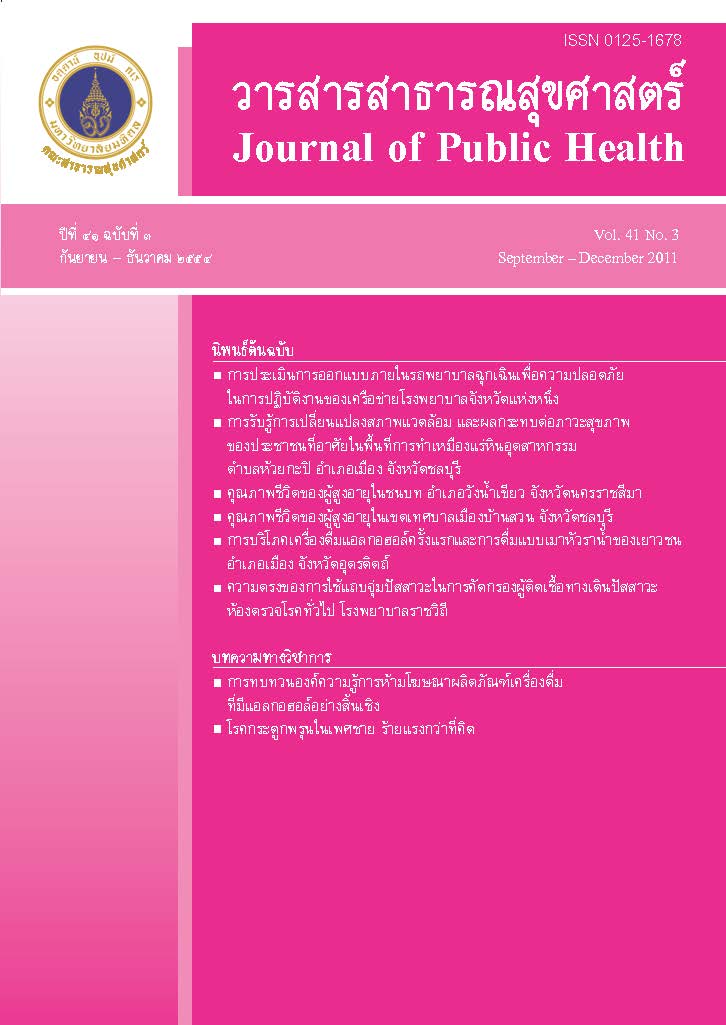ภาวะโภชนาการและสมรรถภาพทางกายของข้าราชการตำรวจ ผู้เข้ารับการอบรมหลักสูตรผู้กำกับการ
Keywords:
body mass index (BMI), physical fitness, police superintendents, ดัชนีมวลกาย, สมรรถภาพทางกาย, ตำรวจผู้กำกับการAbstract
ABSTRACT
This study aimed to investigate the relationship between Body Mass Index and sex, age, blood pressure, percentage of body fat, and physical fitness among 320 police officers attending the 60th and the 61st Training Course for Police Superintendents organized in 2008. The following measurements were done with the studied subjects: body weight, height, blood pressure, percentage of body’s fat, and physical fitness. Test of physical fitness included grip strength, leg strength, flexibility, vital capacity, and maximum oxygen uptake. Descriptive statistics and analytical statistics were used to analyze the data.
It was found that average age of the participants was 45.6 ± 5.3 years; 94.4% were males; 53.4% had normal weight (BMI = 18.50-24.99 kg/m2); 41.3% were overweight (BMI = 25.00-29.99 kg/m2); and 5.3% were obese (BMI > 30 kg/m2). The results of physical fitness test showed that the highest percentage of the participants had a “moderate” level of the grip strength, vital capacity, and flexibility (35.0%, 39.1%, and 41.5% respectively). The result of physical fitness tests revealed that most of the participants had very good level of leg strength (41.3%) but very low level of maximum oxygen uptake (49.4%). The relationship analysis showed that the factors in regard to male, high blood pressure level, and high percentage of body fat related significantly with the BMI at the overweight level and obesity. Comparison of the physical fitness mean score among the participant groups with normal weight, overweight and obesity showed a significant difference of the mean score of grip strength, leg strength, vital capacity, and maximum oxygen uptake. The mean scores of grip strength, leg strength, vital capacity and maximum oxygen uptake was found to be decreased as the BMI increased. The research findings emphasize maintaining body weight at a regular level and physical fitness for the police at the level of police superintendents should be promoted continuously
Key words: body mass index (BMI), physical fitness, police superintendents
Downloads
Issue
Section
License
Creative Commons License CC-BY-ND


